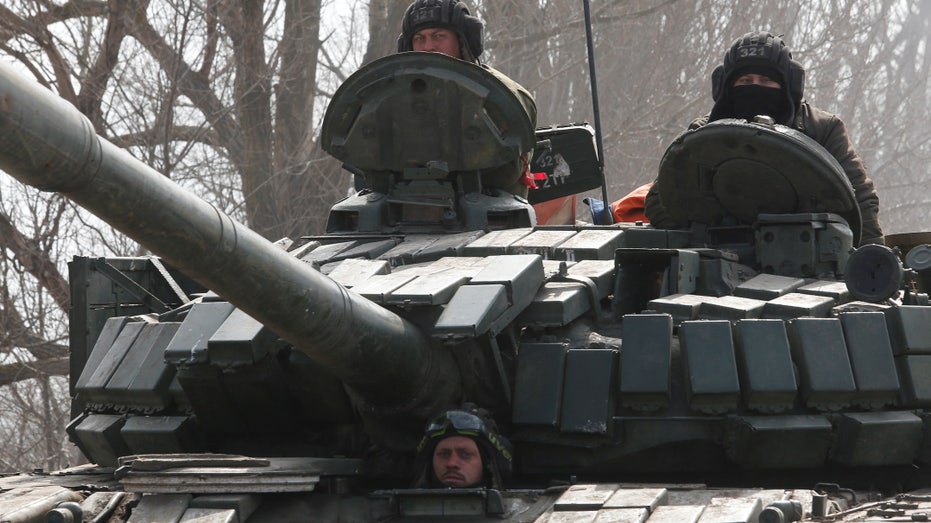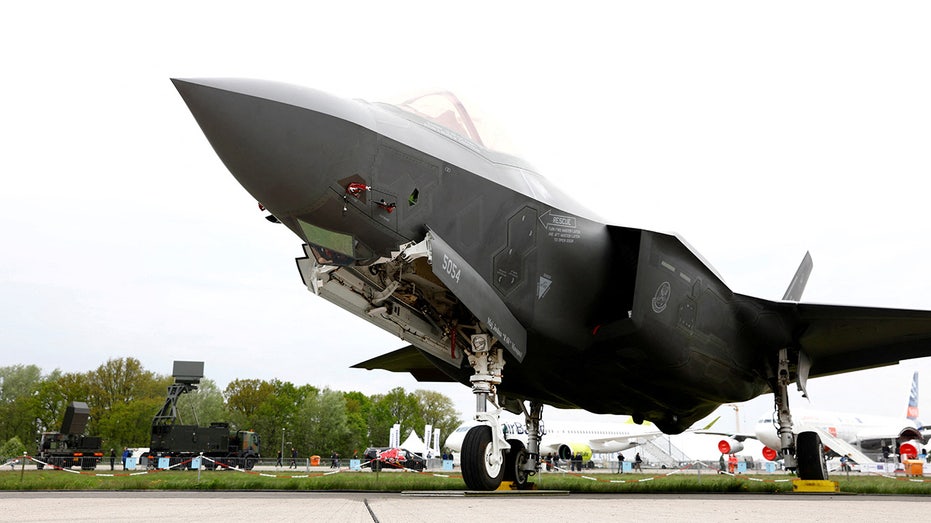What Russia’s latest military setbacks mean for US defense spending, weapons exports
Republicans have called on President Biden to increase defense spending
US accuses Russia of war crimes in Ukraine
Ret. Gen. Jack Keane discusses how the U.S. should be providing the resources to sustain the Ukrainian effort on ‘Fox Business Tonight.’
A Russian tank manufacturer reportedly suspended operations because it cannot get the necessary parts it needs, signaling another potential setback for Russia’s military as the war in Ukraine nears its sixth week.
Ukraine’s General Staff of the Armed Forces made the claim last week writing on Facebook that the state-owned company, Uralvagonzavod, has suspended operations at the Chelyabinsk Tractor plant because it could not import foreign-made products.
The U.S. added Uralvagonzavod to a list of sanctioned companies, saying that its T-72B3 tanks were used in the "illegal invasion of Ukraine." According to the E.U., Uralvagonzavod is the only tank manufacturer in Russia.
RUSSIA INVADES UKRAINE: LIVE UPDATES
The company’s exact circumstances, however, are difficult to gauge with certainty, given Russia’s formidable propaganda machine. If true, the suspended operations would be a significant low for Russia’s military, which has faced strategic problems since rolling across Ukraine.
The invasion could prove to be a boon for U.S. defense spending and weapons exports to foreign countries after falling by more than 20% to $138 billion in fiscal year 2021.
President Biden signed a $1.5 trillion government funding bill last month that sets aside $782 billion toward defense. And on Wednesday, a group of 40 U.S. Republican members of the Senate and House of Representatives Armed Services Committees urged President Joe Biden to include a 5% increase above inflation for defense spending in his proposal for the fiscal 2023 U.S. Budget.
PUTIN'S YACHT REVEALS LEADER'S LUXURY LIFE WHILE RUSSIA SUFFERS SANCTIONS
The president’s budget proposal unveiled last week included $6.9 billion for the European Deterrence Initiative, NATO, and countering Russian aggression to support Ukraine and other partnerships with NATO allies.
The budget would help to "enhance the capabilities and readiness of U.S. forces, NATO allies, and regional partners" amid Russia’s now two-month-long war on Ukraine.
"I’m calling for one of the largest investments in our national security in history, with the funds needed to ensure that our military remains the best-prepared, best-trained, best-equipped military in the world," the president said Monday.
The budget also proposes $773 billion for the Department of Defense.

Service members of pro-Russian troops in uniforms without insignia are seen atop of a tank during Ukraine-Russia conflict outside the separatist-controlled town of Volnovakha in the Donetsk region, Ukraine March 15, 2022. (REUTERS/Alexander Ermochenko)
The U.S. has already given Ukraine Stinger and Javelin missiles, anti-armor, small arms and various munitions, body armor, and Switchblade drones.
Last week, Germany said it will buy 35 U.S. F-35 fighter jets to replace its aging Tornado bombers and – unrelated to Ukraine – General Frank McKenzie, head of U.S. Central Command, told senators the U.S. would be providing Egypt with F-15 aircraft.
The invasion has also forced other European nations to rethink their own defense spending and security. A survey in Finland, which shares an 830-miles long border with Russia, found that more than half of residents supported the country joining NATO – a 34% increase since last fall.
FIRST FEMALE US SECRETARY OF STATE AND NYSE, MADELEINE ALBRIGHT, DIES
A similar survey in Sweden found that more people were in favor of joining NATO than those who were opposed to it.
Meanwhile, major private defense contractors like Raytheon, General Dynamic, Northrup Grumman, and Lockheed Martin have seen their stocks rise sharply since the start of the invasion late last month.

FILE PHOTO: A Lockheed Martin F-35 aircraft is seen at the ILA Air Show in Berlin, Germany, April 25, 2018. (REUTERS/Axel Schmidt)
"You’re starting to see people recognize that there are persistent threats in the world, and we are going to have to invest in our defense long-term," Pete Phillips, a former Marine helicopter pilot, told FOX Business. "That’s the reality of the world we live in. And if we look throughout history, we will always have conflict, I mean, they just don’t go away."
CLICK HERE TO READ MORE FROM FOX BUSINESS
"When you become complacent and you don’t invest in (defense), then people see that as a sign of weakness, and failing to study history and to recognize that there are bad actors in the world that are willing to do back things, it’s where you end up in these situations."





















